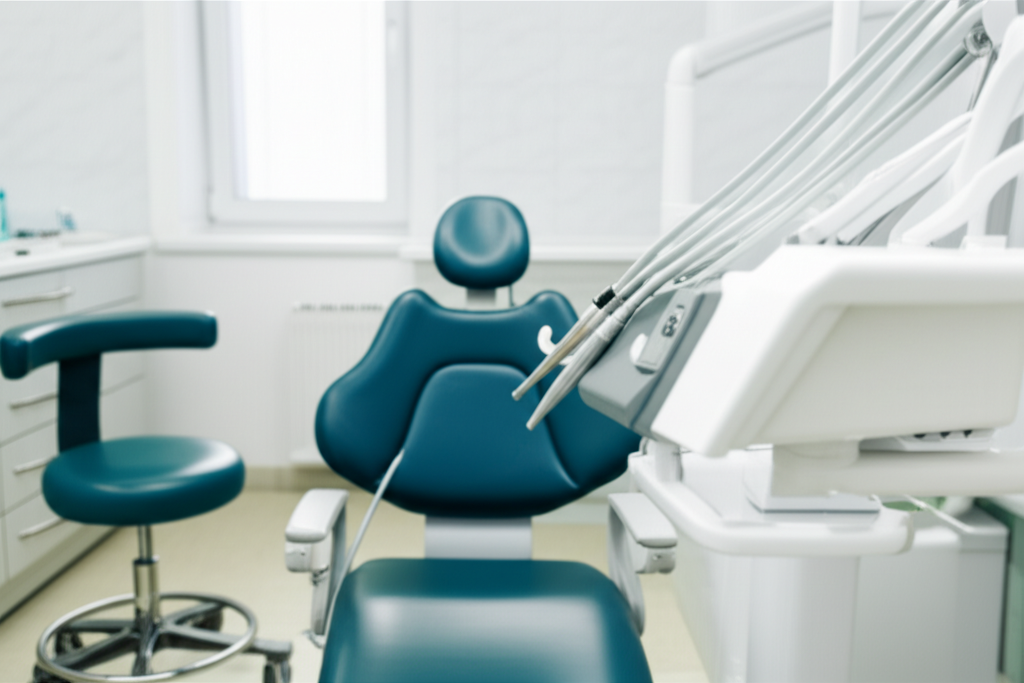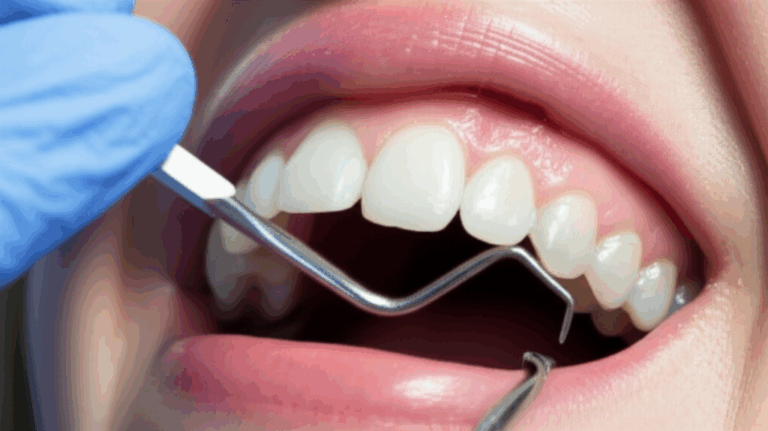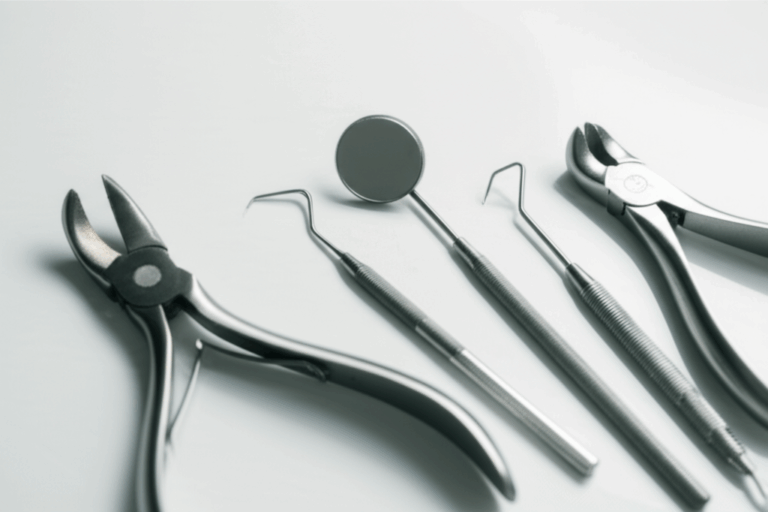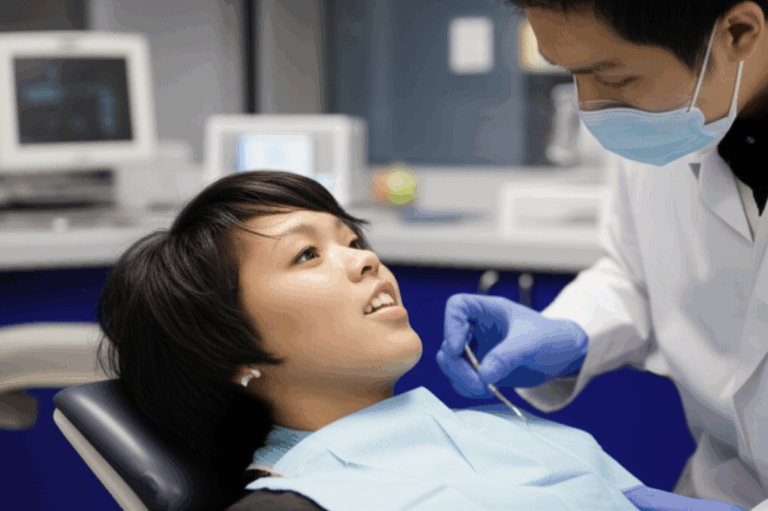
How Long Does Laughing Gas Last After Your Dentist Appointment?
That fast, floaty feeling after your dental visit—sometimes a bit giggly, sometimes just very relaxed—can really stand out. If you’re getting ready for a filling, a cleaning, or any dental work that might need some extra comfort, you might be wondering: How long does laughing gas last after the dentist? Can I drive myself home? Will I feel “weird” for the rest of the day? What should I expect, and how do I know if it’s normal?
Let’s walk through what you’ll feel, why it happens, and how to take care of yourself (or your child) after nitrous oxide—so you can get back to your day with confidence.
In This Article
- What is Laughing Gas (Nitrous Oxide) and How Does it Work?
- Immediate Effects: How Quickly Does Laughing Gas Wear Off?
- Factors Influencing Individual Recovery Time
- What to Expect Immediately After Nitrous Oxide is Discontinued
- When Is It Safe to Drive, Work, and Resume Normal Activities?
- Common, Mild Side Effects (and Their Expected Duration)
- When to Contact Your Dentist (Rare Persistent Symptoms)
- How Laughing Gas Compares to Other Dental Sedation Options
- Tips for a Smooth and Rapid Recovery After Nitrous Oxide
- Frequently Asked Questions (FAQs)
- Conclusion: A Fast, Predictable Return to Your Day
What is Laughing Gas (Nitrous Oxide) and How Does it Work?
If just thinking about the dentist makes your heart beat faster or your hands sweat, you’re not alone. Lots of people—kids and adults—get nervous at the dentist. Laughing gas, or nitrous oxide, is a popular tool that helps make dental visits calmer and easier.
The Basics in Everyday Words
Nitrous oxide is a colorless, odorless gas that helps people chill out. Dentists mix it with oxygen and put it in a soft mask you wear over your nose. You breathe in normally, and in a few minutes, you feel it kick in.
Most people feel lighter, less nervous, and more happy. Some say their arms feel tingly or heavy, or they feel a gentle warmth. You stay awake and can still talk. Laughing gas is called a conscious sedative because you’re not out—you just don’t care as much and are more comfortable.
Why Dentists Use It
Nitrous oxide is great if you:
- Get nervous or scared about dental stuff
- Have a strong gag reflex or trouble keeping still
- Need a long or tough appointment
- Are a child who gets jumpy at the dentist
Dentists like laughing gas because it works fast, is easy to adjust, and (as you’ll see) it wears off really, really quickly.
Immediate Effects: How Quickly Does Laughing Gas Wear Off?
Here’s what you most want to know: Most people stop feeling the main effects of laughing gas within 5-10 minutes after your dentist removes the mask. Pretty quick, right?
Why Is It So Fast?
Unlike some other medicines that stick around in your body, nitrous oxide leaves almost right away. You breathe it in and breathe it right back out—over 99% leaves through your lungs. Your liver or kidneys don’t have to break anything down, and nothing stays in your system for long.
To make sure you feel totally normal, most dentists put you on 100% oxygen for a few minutes after your procedure. This oxygen sweeps away any leftover gas, helps your head feel clear, and keeps you from feeling lightheaded.
In Short…
- Nitrous oxide wears off within 5–10 minutes once you stop breathing it in.
- You sit for a bit in the chair, breathe some extra oxygen, and you’re good to go.
Factors Influencing Individual Recovery Time
We’re all a bit different. So while most people shake off laughing gas in minutes, a few things can make recovery a little faster or slower.
What Can Make the Effects Last a Bit Longer or Shorter
- How Long You Had It: Longer procedures with more gas can mean you feel the effects a little longer, but it’s usually never more than 20–30 minutes.
- How Much Gas You Got: If you got a higher amount of nitrous oxide (always safe, since your dentist is in charge), it may take a bit more time for you to feel 100% normal, especially if you’re sensitive to medicines like this.
- Your Body’s Speed: If you’re young, active, or just have a fast body system, you may be back to normal even quicker. If you have health problems, especially ones that slow down your breathing, you might need some extra time.
- How Healthy You Are: Healthy lungs = quick recovery! If you have breathing problems, just tell your dental team ahead of time—they’ll watch you and give you any help you need.
For Kids
Kids almost always get back to normal fast—sometimes even quicker than adults. Some little kids, or kids with special differences, might seem confused or off for a bit longer. Your dental team will make sure they’re safe before they leave.
What to Expect Immediately After Nitrous Oxide is Discontinued
Let’s look at exactly what happens once the dental team turns off the laughing gas.
What Happens Next
> Easy-to-picture example:
> Leaving nitrous oxide is like walking out of a movie back into the real world. Things may feel odd for just a moment, but a few breaths and you’re right back to normal.
When Is It Safe to Drive, Work, and Resume Normal Activities?
Here’s a big reason people like laughing gas: You can almost always drive yourself home and get back to your normal day soon after your appointment (once the dentist says you’re ready).
Driving and Safety
- Driving: For most people, you can drive yourself 10–15 minutes after the mask is off and you’re fully awake. Your dentist will check to be sure. No special driver needed—unlike with stronger sedatives!
- Using Machines: Same as driving—just wait until the dental team tells you you’re fully clear.
Work, School, and Exercise
- Work or School: You can usually go right back. Laughing gas won’t mess with your thinking or focus.
- Exercise: Light activity is okay. Listen to your body! If you still feel “off,” wait a while before working out or playing sports.
Eating and Drinking
- Drink Water or Eat: Nitrous oxide doesn’t numb your mouth, so you can drink water right after.
- But: If you got a numbing shot, wait until that feeling is gone before eating so you don’t bite your cheek or tongue.
Special Notes
If your dental work included other medicines or shots, your dentist may have extra instructions. Always follow what they say.
Common, Mild Side Effects (and Their Expected Duration)
Most people feel just fine when they leave. But sometimes there are minor, short-lasting effects from laughing gas.
What You Could Feel
- Feeling Dizzy: This is the main one, especially if you stand up too fast. It goes away in a few minutes.
- Mild Nausea or Upset Stomach: Not common for grown-ups, and usually from eating a big meal before, long appointments, or extra gas. Sipping water or relaxing usually helps.
- Headache: Pretty rare, and should leave within a few hours. Breathing oxygen after helps lower this risk.
- Shivery or Cold: Sometimes you might feel a small chill. It’s not because you’re really cold and it passes quickly.
- Giggly or Very Happy: That “everything’s funny” mood is gone in about 10–15 minutes, but can feel a bit odd at first.
Less Common and Rare Effects
- Tiredness: Some people feel sleepy or just “not quite right.” Rest and water help.
- A Little Confused: Rare, but if you feel spaced out, wait until you feel steady.
When You Shouldn’t Worry
These feelings are normal after nitrous oxide and way milder than with deeper sedatives.
When to Contact Your Dentist (Rare Persistent Symptoms)
Most side effects are small and short-lived. But sometimes you should reach out to your dentist.
Call If These Happen (Or Last More Than An Hour)
- Nausea or Throwing Up: If you’re sick for over an hour, or can’t drink or keep fluid down, call the dental office.
- Really Bad Headache: Especially if it doesn’t get better with normal medicine.
- Still Dizzy or Out of It: If you don’t feel like yourself after an hour, it’s smart to check in.
- Trouble Breathing or Chest Pain: This is rare. But if it happens, get help right away.
- Pass Out or Can’t Stand Up: Call the dentist (or emergency services if you need to)—don’t try to drive.
Dentists are used to questions about laughing gas and would rather you call than worry about something on your own.
> Good to know:
> The American Dental Association says most people (over 90%) are happy with how safe and easy laughing gas is. Almost no one has lasting problems, which is why so many dental offices use it—especially for nervous people and kids.
How Laughing Gas Compares to Other Dental Sedation Options
Wondering how laughing gas stacks up against other ways dentists help you relax—like pills or IV medicines? Here’s a simple look:
| Sedation Method | How Long It Lasts | Can You Drive Home? | Side Effects/Recovery |
|---|---|---|---|
| Laughing Gas | Gone in 5–15 minutes after the mask is off | Yes, after dentist approves | Mild, last just a few minutes; usually fine after |
| Oral Sedation | Lasts for hours, might feel groggy all day | No, someone else must drive | Sleepy, memory gaps, could fall, still out of it later |
| IV Sedation | Hours, maybe longer | No, need someone to take you home | Very sleepy, not safe for work/school after, must be watched closely |
Laughing gas is a clear winner for easy, in-and-out visits. It wears off really fast, is safe, and only makes you feel calm—not knocked out. For bigger dental jobs, your dentist might use other ways to help, or work with labs that are used to this—like a crown and bridge lab. But for simple things like fillings or cleanings, nitrous oxide is the top choice.
Tips for a Smooth and Rapid Recovery After Nitrous Oxide
Want your dental experience to be as easy as possible? Here’s how you can help:
- Breathe the Oxygen: When the dentist switches the mask to oxygen at the end, take slow, deep breaths.
- Don’t Rush: Sit down for a few minutes after your appointment before standing up.
- Drink Some Water: Being a little thirsty can feel like dizziness. Drink water soon after.
- Eat Light: Skip big or greasy meals before the dentist. A small snack or nothing is best.
- Follow Your Dentist’s Advice: If you got numbing shots or other treatment, your dentist will give you tips. Always listen to them.
Pro tip: If you feel dizzy, tingly, or not quite right, tell the staff before you leave—or call the office later just to be sure.
Frequently Asked Questions (FAQs)
Q: Can you still feel the effects of laughing gas an hour later?
A: Almost never. Most people feel normal in 10–15 minutes. If you still feel weird after an hour, call the office just to ask.
Q: Does laughing gas make you sleepy?
A: It makes most people feel calm and a little dreamy, but usually not truly sleepy. If you do feel tired, rest before driving home.
Q: Is nitrous oxide safe for children?
A: Yes, it’s one of the safest ways to help kids relax at the dentist—even really young ones. Doses are tiny and recovery is fast. If you want more help deciding for your children, check our patient dental guide.
Q: How does laughing gas leave your body?
A: You just breathe it in and breathe it right out. Your body doesn’t have to break it down.
Q: Do I need someone to drive me home after laughing gas?
A: Usually no! With just laughing gas, you can drive yourself as soon as your dentist says you’re ready. The only time you’d need help is if you had other kinds of sedation too, or have special needs your dentist told you about.
Q: Can I take pain medicine or antibiotics after laughing gas?
A: Yes—laughing gas is fine with most medicines, but check with your dentist if you’re not sure, especially if you’re taking strong medicine for other reasons.
Conclusion: A Fast, Predictable Return to Your Day
Let’s sum up the good news about laughing gas:
- Fast Recovery: Laughing gas wears off in 5–10 minutes after your dentist shuts it off.
- No Big Restrictions: You can usually drive, go back to work or school, and do what you need the same day.
- Side Effects Are Rare and Mild: If you get anything more than tingling or brief dizziness, it should be gone soon—and your dentist is just a call away.
- Works for All Ages: From nervous grown-ups to little kids, laughing gas is an easy, gentle choice that helps you feel better fast.
Here’s What To Do For An Easy Dental Appointment:
- Talk to your dentist if you’re worried—ask if laughing gas will make your visit better.
- Know you can probably go back to normal life right away after.
- If you ever feel strange longer than you think you should—just call your dentist for peace of mind.
Your dental visits should be easy and stress-free. Laughing gas helps make the dentist something you don’t have to fear—letting you and your family get the care you need and then get back to your life.
Want more info about dental sedation, dental work, or getting your smile back? Check out our other resources, or see china dental lab and learn about new ways to make dental care even better. Remember: Your dentist is always the best person to help you every step of the way.
Checked and approved by your local dental care team. Have a question or something feels off? Call your dental office—they’re always happy to help you smile with confidence.








